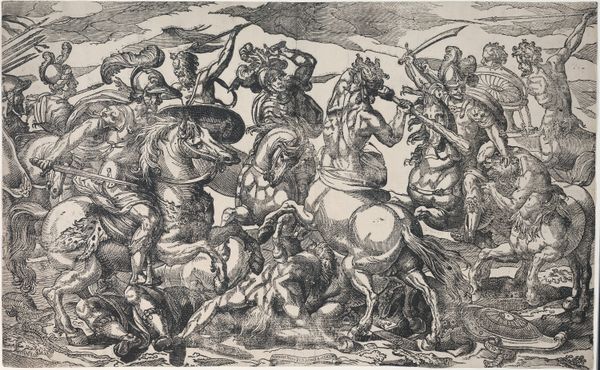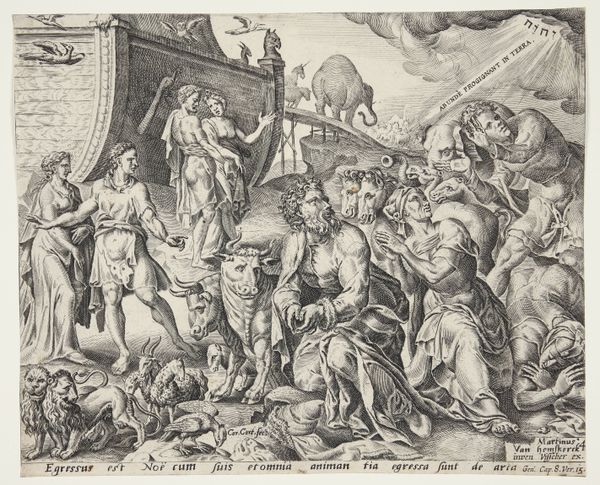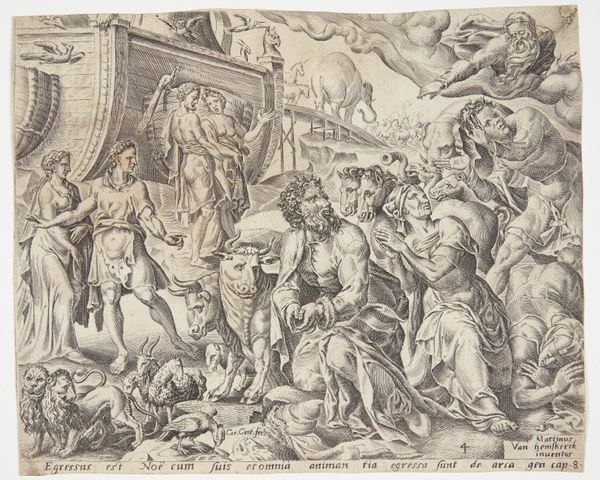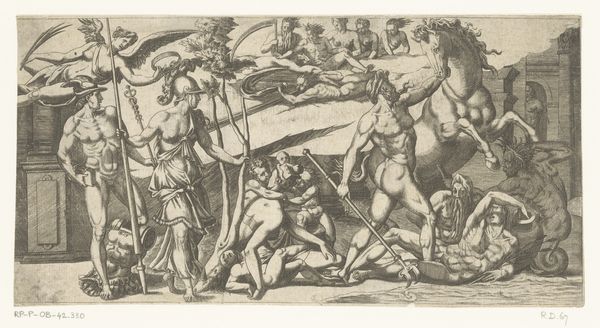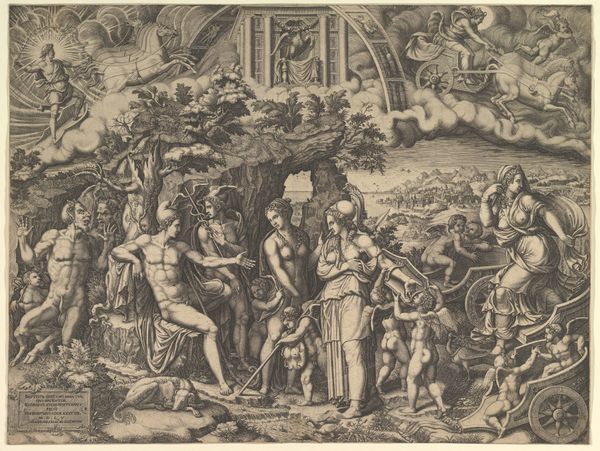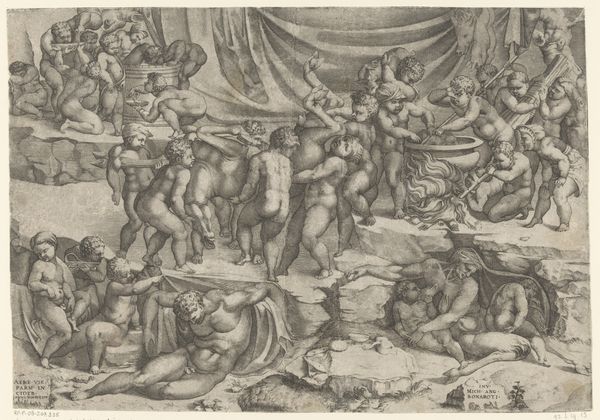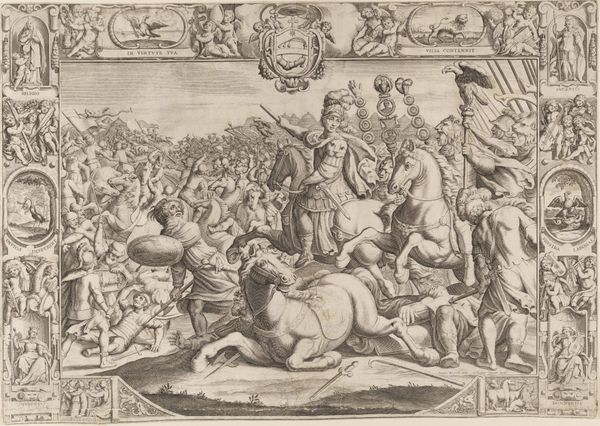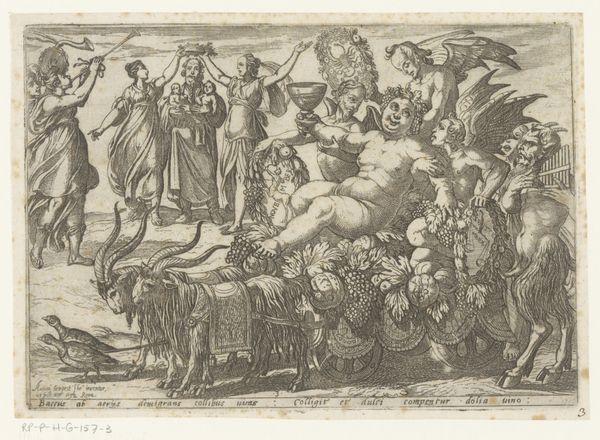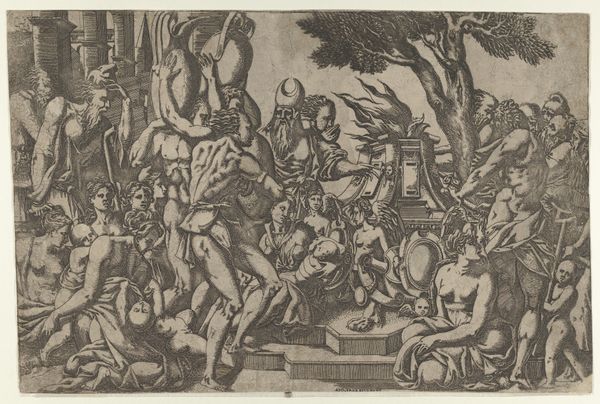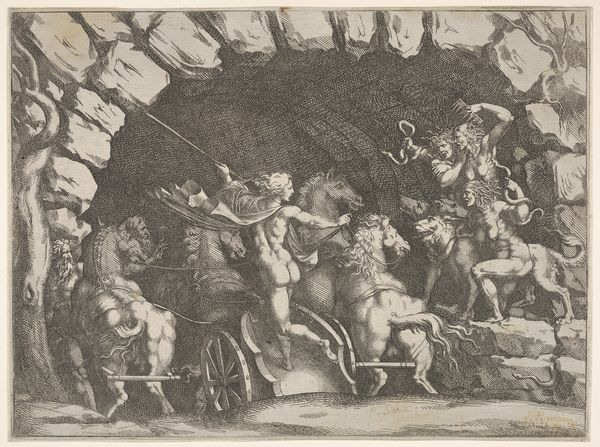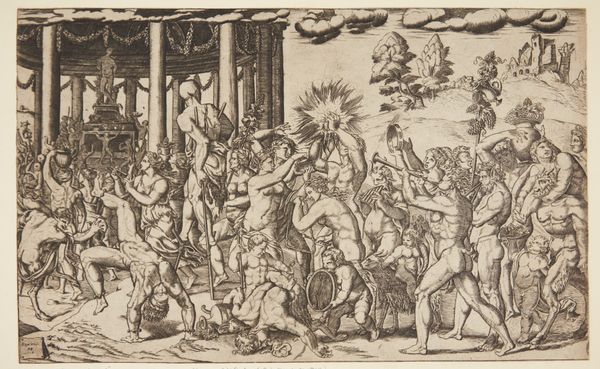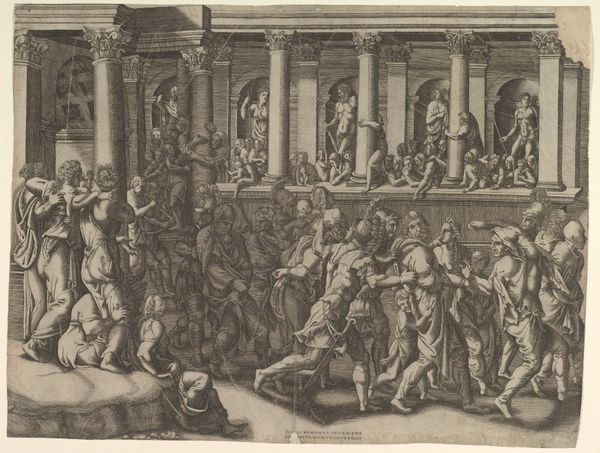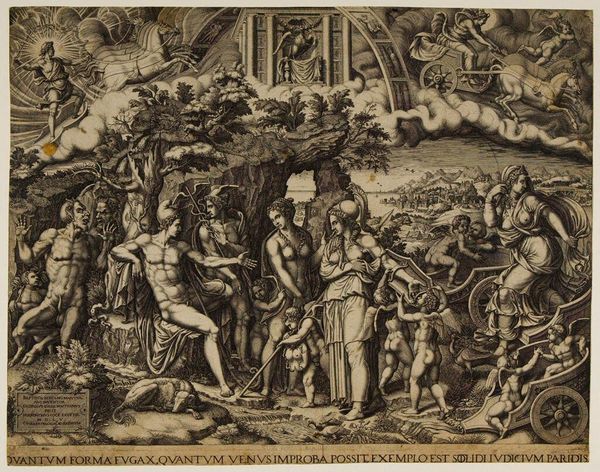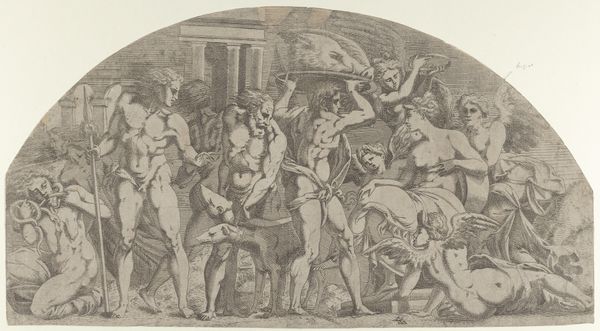
print, ink, engraving
#
ink drawing
#
allegory
# print
#
mannerism
#
figuration
#
ink
#
history-painting
#
nude
#
engraving
Dimensions: 323 mm (height) x 831 mm (width) (monteringsmaal), 312 mm (height) x 371 mm (width) (bladmaal)
This engraving by Francesco Bertelli, dating from the 17th century, depicts the triumphant procession of Bacchus, the Roman god of wine and ecstasy. The image teems with symbols of revelry: grape vines, wreaths, and ecstatic figures. Bacchus sits enthroned on a wheeled cart, reminiscent of ancient Roman triumphal arches, symbols of power and celebration. Notice how the satyrs and nymphs, creatures of untamed nature, accompany him, their gestures wild, embodying a release from restraint. This motif of Bacchus and his entourage has appeared throughout art history, notably in Renaissance paintings. Consider Titian’s “Bacchus and Ariadne,” where the god leaps from his chariot, overwhelmed by love. The god’s triumph reflects a recurring human desire: to escape the rational world and surrender to primal instincts. The intoxicating power of the image lies in this invitation to abandon control, tapping into a deep-seated longing for liberation that echoes through centuries. These symbols create a powerful force, engaging viewers on a deep, subconscious level, which is then translated and transformed into the present.
Comments
No comments
Be the first to comment and join the conversation on the ultimate creative platform.
